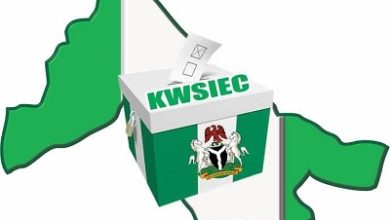The fall of Mugabe

After weeks of high wire intrigues, Zimbabwe (former) President, Robert Mugabe resigned from power after 37 years as president. He was born February 21, 1924. He is a Zimbabwean revolutionary and politician who led his country as Prime Minister from 1980 to 1987 and as President from 1987 to 2017. He chaired the Zimbabwe African National Union(ZANU) group from 1975 to 1980 and led its successor political party, the ZANU – Patriotic Front (ZANU–PF), from 1980 to 2017. Ideologically an African nationalist, during the 1970s and 1980s he identified as a Marxist–Leninist although after the 1990s self-identified only as a socialist; his policies have been described as Mugabeism.
Mugabe was born to a poor Shona family in Kutama, Southern (what was then known as) Rhodesia. Following an education at Kutama College and the University of Fort Hare, he worked as a school teacher in Southern Rhodesia, Northern Rhodesia, and Ghana. Angered that Southern Rhodesia was a British colony governed by a white minority, Mugabe embraced Marxism and joined African nationalist protests calling for an independent black-led state. After making anti-government comments he was convicted of sedition and imprisoned between 1964 and 1974. On release he fled to Mozambique, established his leadership of ZANU, and oversaw ZANU’s role in the Rhodesian Bush War, fighting Ian Smith’s predominantly white government.
He reluctantly took part in the peace negotiations brokered by the United Kingdom that resulted in the Lancaster House Agreement. The agreement dismantled white minority rule and resulted in the 1980 general election, at which Mugabe led ZANU-PF to victory and became Prime Minister of the newly renamed Zimbabwe. Mugabe’s administration expanded healthcare and education and—despite his Marxist rhetoric and professed desire for a socialist society—adhered largely to conservative economic policies.
Mugabe was a foremost anti colonial activist. He pursued decolonisation with grit and nerve. Mugabe’s government emphasised the redistribution of land controlled by white farmers to landless blacks, initially on a “willing seller-willing buyer” basis. Frustrated at the slow rate of redistribution, from 2000 Mugabe encouraged the violent seizure of white-owned land. Food production was severely impacted, generating famine and drastic economic decline and leading to international sanctions.
Opposition to Mugabe grew, particularly through the Movement for Democratic Change, although he was re-elected in 2002, 2008, and 2013 through campaigns dominated by violence, electoral fraud, and nationalistic appeals to his rural Shona voter base. Internationally, Mugabe sent troops to fight in the Second Congo War and chaired the Non-Aligned Movement during the dying years of the cold war (1986–89), the Organisation of African Unity (1997–98), and the African Union (2015–16).
However, as with many sit-tight rulers around the world, the grand old man did not recognise that his time was up. Elections had become more chaotic. And more and more activists, politicians and everyday people who held him in awe and revered him began to challenge him openly. The economy was running into a certain ditch. He was not perturbed. He was more interested in preserving power and taking care of his old age and the good life of his extensive family members. Thus, it was not surprising that on November 15, 2017, he was placed under house arrest as Zimbabwe’s military took control in a coup. Following his removal as the head of ZANU-PF, and the start of impeachment proceedings against him, Mugabe resigned as President on 21 November, 2017.
Of course the military did not proceed with the coup. It instead found another way to achieve regime change without shedding blood or through unconstitutional means. Having dominated Zimbabwe’s politics for nearly four decades, Mugabe has been a controversial and divisive figure. He has been praised as a revolutionary hero of the African liberation struggle who helped to free Zimbabwe from British colonialism, imperialism, and white minority rule. Conversely, he has been accused of being a dictator responsible for economic mismanagement, widespread corruption, racial discrimination, human rights abuses, suppression of political critics, and crimes against humanity.
Robert Gabriel Mugabe is well read and 93. His first wife Sally died of cancer. His wife Grace is perhaps the reason for this slew of events in recent times. She was said to be scheming to become deputy president. This was perhaps the reason for the dismissal of Mugabe’s deputy to pave way for Grace. This has backfired as both Grace and Robert have been forced to resign. With his life’s work, Mugabe did not deserve to be forced out. But this is what happens when political leaders fail to know when to quit. Mugabe over-stayed his welcome and was forced to fall from grace to grass.





